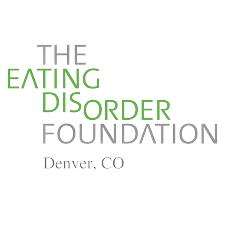Dr. Wendy Oliver-Pyatt
M.D., FAED, CEDS, F.IAEDP
Dr. Wendy Oliver-Pyatt is an entrepreneur, world-renowned speaker, author, philanthropist, and leading expert in treating eating disorders with over 20 years of experience. She is the co-founder and CEO of several esteemed institutions, most recently Within Health and Galen Hope Treatment Center.
Wendy’s Work
Your at-home eating disorder treatment team.
A community for
integrated wellness.
Join our mission to eliminate the anti-fat bias.
Charitable
Foundation
Dr. Wendy Oliver-Pyatt completed her training as a psychiatrist at NYU-Bellevue Hospital, where she served as a Chief Resident. Her training and experiences involve direct patient care and leadership across multiple levels of care and treatment modalities, including inpatient psychiatry, residential addiction programs (where she served as a medical director), forming PACT PROGRAMS (Programs for Assertive Community Treatment), emergency room psychiatry, public outpatient care, and private outpatient care. In 2001, she became the State of Nevada Division of Mental Health and Disability Services Medical Director, overseeing all aspects of mental health treatment in Nevada, for which she received Senatorial Recognition. She was the first woman and youngest person ever to assume this role. In 2003, Dr. Oliver-Pyatt founded her first Residential Eating Disorder Treatment program, the Center for Hope of the Sierras. This program expanded to add Partial Hospitalization Care and Transitional Living. Later, in 2008, Dr. Oliver-Pyatt went on to found Oliver-Pyatt Centers and Clementine, both nationally and internationally recognized as top programs in the field of eating disorders.
Meet Dr. Oliver-Pyatt
A Guide for Clinicians
The Book
Questions & Answers About Binge Eating Disorder:
Written in a question-and-answer format, Questions and Answers about Binge Eating Disorder: A Guide for Clinicians provides answers to the questions most commonly asked by practitioners treating patients with binge eating disorders (BED). What criteria should I use to diagnose Binge Eating Disorder? What are the most common misconceptions about eating disorders in adults? Is it possible for my patient to fully recover from BED or any other eating disorder? This authoritative resource also addresses crucial topics ranging from risk factors and causes of BED, to treatment protocols and recovery from BED, to advice for families and caregivers of people suffering from BED. Written by an expert in the field, Questions and Answers about Binge Eating Disorder: A Guide for Clinicians is an essential resource for all practitioners managing the treatment of patients with BED.

Top Healthcare Entrepreneurs of 2024 & Beyond
Voted By
Featured In

“Success is a by-product of living life according to your values, interests, and convictions. I think that being in a place of gratitude brings acceptance with it. You can apply this to yourself, your body, your relationships, and to life itself. Sometimes, when things feel scary in life or I am unsure of how things will work out, I go to a place of gratitude.”
Dr. Wendy Oliver-Pyatt
Commitees & Affiliations
Speaking Experience
Topics
Wellness or Weight Stigma: Getting What You Want, Need and Deserve in the Healthcare System
The Perfect Storm: Intersection of Pandemic, Social Media, Epigenetics and Eating Disorders
Breakthroughs in Treatment: Past, Present and Future of Eating Disorders
Presentations & Keynotes
The Evolution and Burden of Shame: Why it Matters Now
Past Present and Future of Treatment Refractory Eating Disorders
Eating Disorders in Midlife and Menopause
Medical Perspectives on Binge Eating Disorder
For the full list of Wendy’s presentations, please download her CV below.

Honors & Awards
-
Special Recognition for Excellence in Psychiatry and for Efforts to Decriminalize the Mentally Ill
-
Fellow of the Year
-
For Commitment and Contribution to Mental Health in the State of Nevada
-
International Association of Eating Disorder Professionals awards for Special Recognition by Sierra Tucson on behalf of Florida mental health providers
-










































